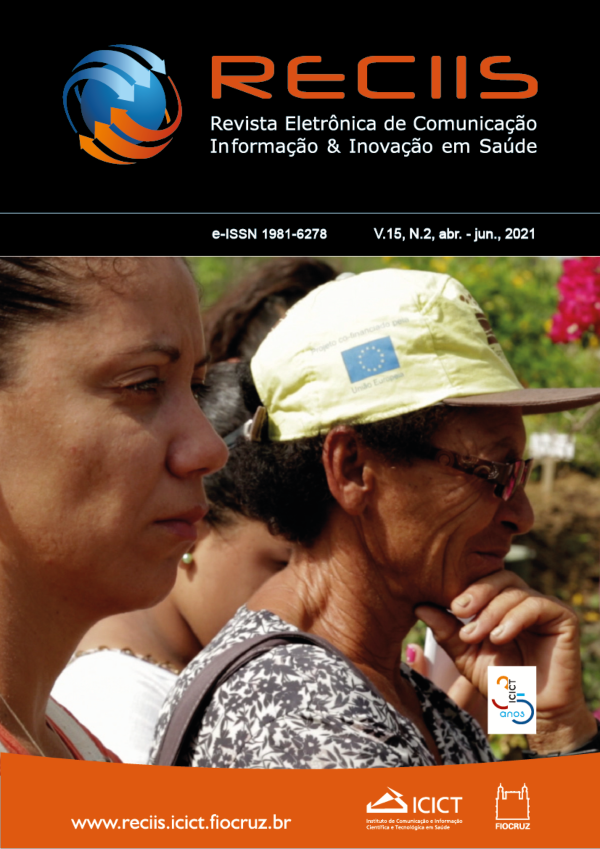Convergences between the Brazilian National Health Plan and scientific articles on Neglected Tropical Diseases
DOI:
https://doi.org/10.29397/reciis.v15i2.2220Palavras-chave:
Neglected diseases, Tropical Medicine, Scientific Publication Indicators, National health policy, Health research evaluation.Resumo
In Brazil, the National Health Plan (NHP) was the central instrument for public health planning from 2016 to 2019. In this paper, we show that there is a convergence between the Plan and the publication of scientific articles written by institutional researchers in the context of Neglected Tropical Diseases. The methodology used consisted of the following stages: identification of the universe of researchers, data collection, thematic characterization of Neglected Tropical Diseases in the Plan, organization of information, and production of indicators. In total, there were 2,719 researchers and 18,023 journal articles from 2015 to 2018. Of these, 2,541 articles, or 14.09%, were related to Neglected Tropical Diseases. Regarding the convergences, there was strong alignment with leishmaniasis, Chagas disease, dengue, leprosy, schistosomiasis, and Chikungunya fever. However, the coverage of topics by scientific publications was broader than that of the political instrument due to the inclusion of other themes: snake bites, helminthiasis and lymphatic filariasis.
Downloads
Publicado
Como Citar
Edição
Seção
Licença
Direitos de autor: O autor retém, sem restrições dos direitos sobre sua obra.
Direitos de reutilização: A Reciis adota a Licença Creative Commons, CC BY-NC atribuição não comercial conforme a Política de Acesso Aberto ao Conhecimento da Fundação Oswaldo Cruz. Com essa licença é permitido acessar, baixar (download), copiar, imprimir, compartilhar, reutilizar e distribuir os artigos, desde que para uso não comercial e com a citação da fonte, conferindo os devidos créditos de autoria e menção à Reciis. Nesses casos, nenhuma permissão é necessária por parte dos autores ou dos editores.
Direitos de depósito dos autores/autoarquivamento: Os autores são estimulados a realizarem o depósito em repositórios institucionais da versão publicada com o link do seu artigo na Reciis.












